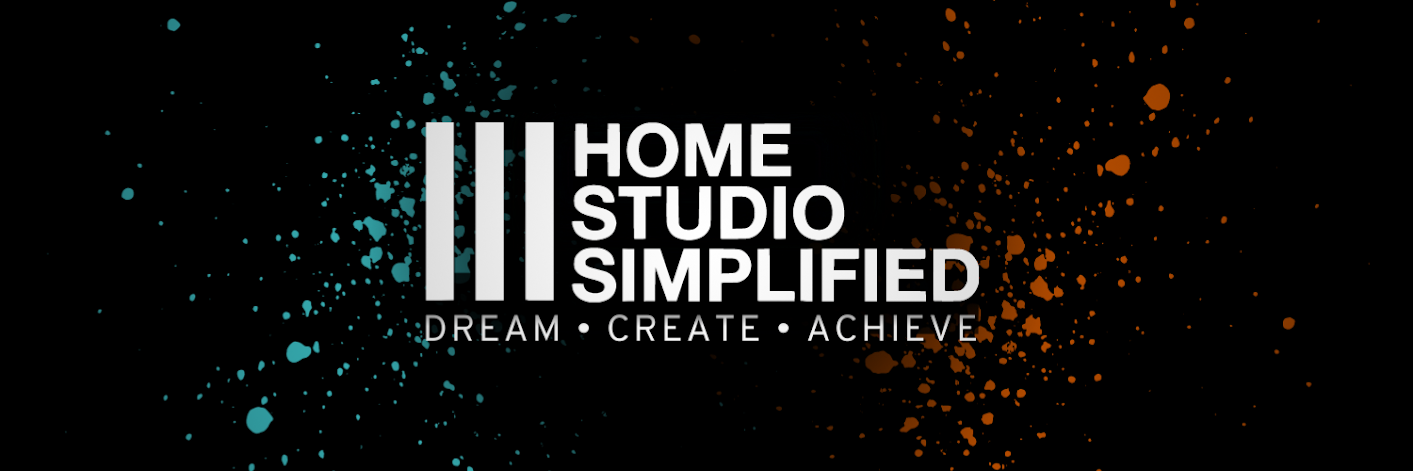In today's music industry, the rise of home studios has transformed the way artists and producers create music. With advancements in technology, it's now possible to produce professional-quality recordings from the comfort of your own home. But like any creative endeavor, recording in a home studio comes with its own set of advantages and challenges. Let's explore both sides.
The Pros of Recording in a Home Studio
1. Creative Freedom One of the most significant benefits of recording at home is the creative freedom it offers. You’re not bound by the constraints of a commercial studio’s schedule, which means you can take your time to experiment with different sounds, arrangements, and recording techniques. Whether you're diving deep into a late-night inspiration or fine-tuning a mix over several days, a home studio allows you to work at your own pace.
2. Cost-Effectiveness Commercial studio time can be expensive, especially for independent artists or those just starting out. A home studio, once set up, eliminates the need for hourly rates, making it a cost-effective solution for recording multiple tracks or even entire albums. While there is an initial investment in equipment, over time, this setup can save a significant amount of money.
3. Comfort and Convenience Recording at home provides a level of comfort that’s hard to replicate elsewhere. You’re in a familiar environment where you can relax and focus on your music without the pressure that sometimes comes with being in a professional studio. This comfort can lead to more authentic and heartfelt performances.
4. Flexibility Home studios offer unparalleled flexibility. You can record whenever inspiration strikes, without worrying about booking studio time or working around the schedules of others. This flexibility is particularly beneficial for artists who juggle music with other responsibilities, allowing them to fit recording sessions into their lives rather than the other way around.
5. Learning Opportunities Operating a home studio forces you to learn about the technical aspects of recording, mixing, and producing. This knowledge is invaluable, as it not only enhances your ability to create music but also empowers you to communicate more effectively with other industry professionals.
If you're interested in learning more about the ins and outs of recording in a home studio, check out this playlist for in-depth videos on the topic.
The Cons of Recording in a Home Studio
1. Acoustic Limitations One of the biggest challenges of a home studio is the acoustics. Most homes aren’t designed with recording in mind, which can lead to issues like unwanted reflections, room modes, and background noise. These acoustic limitations can affect the quality of your recordings, making it harder to achieve a professional sound without investing in acoustic treatment or other solutions.
2. Equipment Constraints While technology has made home recording more accessible, professional studios still have an edge when it comes to high-end equipment. The microphones, preamps, and outboard gear found in top-tier studios can be prohibitively expensive for a home setup. As a result, the quality of your recordings may be limited by the gear you have on hand. If you're looking to upgrade your equipment, you can explore options here.
3. Distractions Recording at home can be filled with distractions. Whether it's family members, household chores, or the temptation to procrastinate, maintaining focus can be challenging. Unlike a professional studio, where the environment is designed to foster creativity, a home studio requires discipline to avoid these distractions.
4. Limited Collaboration In a commercial studio, you have access to engineers, producers, and other musicians who can provide valuable input and feedback. Recording at home can be a more solitary experience, which might limit your exposure to new ideas and perspectives. While remote collaboration is possible, it doesn’t always replace the immediacy and spontaneity of working with others in person.
5. Technical Difficulties Operating a home studio means you’re responsible for troubleshooting any technical issues that arise. Whether it’s a software crash, a broken cable, or a confusing plugin, these problems can interrupt your creative flow. In a professional studio, there’s usually a team of experts to handle such issues, allowing you to focus solely on your music.
Conclusion
Recording in a home studio offers a unique blend of advantages and challenges. For many artists, the freedom, cost savings, and comfort outweigh the potential drawbacks, making it an attractive option for music production. However, it’s important to be aware of the limitations and be prepared to invest time and effort into overcoming them.
Whether you’re an independent artist looking to release your next single or a seasoned producer experimenting with new sounds, a home studio can be a powerful tool in your creative arsenal. By understanding the pros and cons, you can make informed decisions that will help you get the most out of your home recording experience.
For more tips, tutorials, and insights into recording in a home studio, subscribe to my YouTube channel and stay updated with the latest content. Your journey to better recordings starts here!
